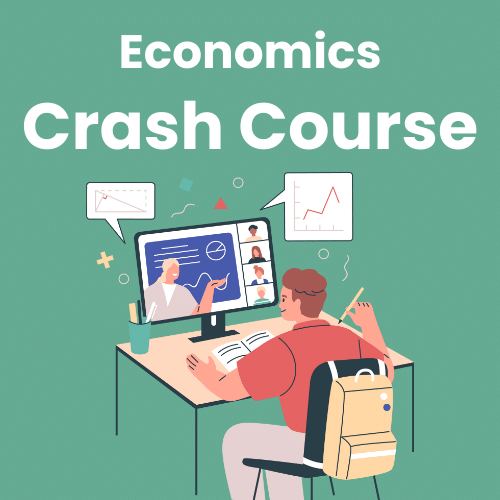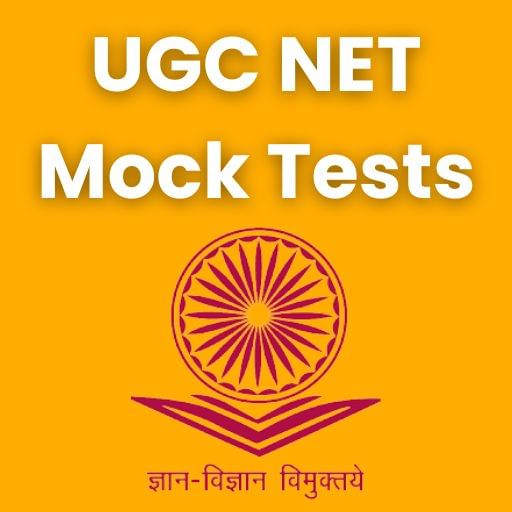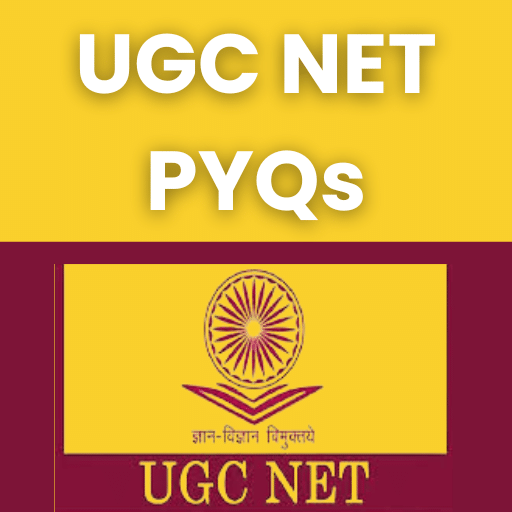Best Study Material for UGC NET Exam
UGC NET Exam > UGC NET Notes > Crash Course for UGC NET Economics > Syllabus: UGC NET Economics (Paper - II)
Syllabus: UGC NET Economics (Paper - II) | Crash Course for UGC NET Economics PDF Download
| Download, print and study this document offline |
Please wait while the PDF view is loading
Page 1
-1-
UNIVERSITY GRANTS COMMISSION
NET BUREAU
NET SYLLABUS
Subject: ECONOMICS Code No.: 01
Unit-1 : Micro Economics
? Theory of Consumer Behaviour
? Theory of Production and Costs
? Decision making under uncertainty Attitude towards Risk
? Game Theory – Non Cooperative games
? Market Structures, competitive and non-competitive equilibria and their
efficiency properties
? Factor Pricing
? General Equilibrium Analysis
? Efficiency Criteria: Pareto-Optimality, Kaldor – Hicks and Wealth Maximization
? Welfare Economics: Fundamental Theorems , Social Welfare Function
? Asymmetric Information: Adverse Selection and Moral Hazard
Unit-2 : Macro Economics
? National Income: Concepts and Measurement
? Determination of output and employment: Classical & Keynesian Approach
? Consumption Function
? Investment Function
? Multiplier and Accelerator
? Demand for Money
? Supply of Money
? IS – LM Model Approach
Page 2
-1-
UNIVERSITY GRANTS COMMISSION
NET BUREAU
NET SYLLABUS
Subject: ECONOMICS Code No.: 01
Unit-1 : Micro Economics
? Theory of Consumer Behaviour
? Theory of Production and Costs
? Decision making under uncertainty Attitude towards Risk
? Game Theory – Non Cooperative games
? Market Structures, competitive and non-competitive equilibria and their
efficiency properties
? Factor Pricing
? General Equilibrium Analysis
? Efficiency Criteria: Pareto-Optimality, Kaldor – Hicks and Wealth Maximization
? Welfare Economics: Fundamental Theorems , Social Welfare Function
? Asymmetric Information: Adverse Selection and Moral Hazard
Unit-2 : Macro Economics
? National Income: Concepts and Measurement
? Determination of output and employment: Classical & Keynesian Approach
? Consumption Function
? Investment Function
? Multiplier and Accelerator
? Demand for Money
? Supply of Money
? IS – LM Model Approach
-2-
? Inflation and Phillips Curve Analysis
? Business Cycles
? Monetary and Fiscal Policy
? Rational Expectation Hypothesis and its critique
?
Unit- 3 : Statistics and Econometrics
? Probability Theory: Concepts of probability, Distributions, Moments,
Central Limit theorem
? Descriptive Statistics – Measures of Central tendency & dispersions,
Correlation, Index Numbers
? Sampling methods & Sampling Distribution
? Statistical Inferences, Hypothesis testing
? Linear Regression Models and their properties – BLUE
? Identification Problem
? Simultaneous Equation Models – recursive and non-recursive
? Discrete choice models
? Time Series Analysis
Unit-4 : Mathematical Economics
? Sets, functions and continuity, sequence, series
? Differential Calculus and its Applications
? Linear Algebra – Matrices, Vector Spaces
? Static Optimization Problems and their applications
? Input-Output Model, Linear Programming
? Difference and Differential equations with applications
Unit-5 : International Economics
? International Trade: Basic concepts and analytical tools
? Theories of International Trade
? International Trade under imperfect competition
? Balance of Payments: Composition, Equilibrium and Disequilibrium
and Adjustment Mechanisms
? Exchange Rate: Concepts and Theories
? Foreign Exchange Market and Arbitrage
? Gains from Trade, Terms of Trade, Trade Multiplier
Page 3
-1-
UNIVERSITY GRANTS COMMISSION
NET BUREAU
NET SYLLABUS
Subject: ECONOMICS Code No.: 01
Unit-1 : Micro Economics
? Theory of Consumer Behaviour
? Theory of Production and Costs
? Decision making under uncertainty Attitude towards Risk
? Game Theory – Non Cooperative games
? Market Structures, competitive and non-competitive equilibria and their
efficiency properties
? Factor Pricing
? General Equilibrium Analysis
? Efficiency Criteria: Pareto-Optimality, Kaldor – Hicks and Wealth Maximization
? Welfare Economics: Fundamental Theorems , Social Welfare Function
? Asymmetric Information: Adverse Selection and Moral Hazard
Unit-2 : Macro Economics
? National Income: Concepts and Measurement
? Determination of output and employment: Classical & Keynesian Approach
? Consumption Function
? Investment Function
? Multiplier and Accelerator
? Demand for Money
? Supply of Money
? IS – LM Model Approach
-2-
? Inflation and Phillips Curve Analysis
? Business Cycles
? Monetary and Fiscal Policy
? Rational Expectation Hypothesis and its critique
?
Unit- 3 : Statistics and Econometrics
? Probability Theory: Concepts of probability, Distributions, Moments,
Central Limit theorem
? Descriptive Statistics – Measures of Central tendency & dispersions,
Correlation, Index Numbers
? Sampling methods & Sampling Distribution
? Statistical Inferences, Hypothesis testing
? Linear Regression Models and their properties – BLUE
? Identification Problem
? Simultaneous Equation Models – recursive and non-recursive
? Discrete choice models
? Time Series Analysis
Unit-4 : Mathematical Economics
? Sets, functions and continuity, sequence, series
? Differential Calculus and its Applications
? Linear Algebra – Matrices, Vector Spaces
? Static Optimization Problems and their applications
? Input-Output Model, Linear Programming
? Difference and Differential equations with applications
Unit-5 : International Economics
? International Trade: Basic concepts and analytical tools
? Theories of International Trade
? International Trade under imperfect competition
? Balance of Payments: Composition, Equilibrium and Disequilibrium
and Adjustment Mechanisms
? Exchange Rate: Concepts and Theories
? Foreign Exchange Market and Arbitrage
? Gains from Trade, Terms of Trade, Trade Multiplier
-3-
? Tariff and Non-Tariff barriers to trade; Dumping
? GATT, WTO and Regional Trade Blocks; Trade Policy Issues
? IMF & World Bank
Unit-6 : Public Economics
? Market Failure and Remedial Measures: Asymmetric Information,
Public Goods, Externality
? Regulation of Market – Collusion and Consumers’ Welfare
? Public Revenue: Tax & Non-Tax Revenue, Direct & Indirect Taxes,
Progressive and non-Progressive Taxation, Incidence and Effects of
Taxation
? Public expenditure
? Public Debt and its management
? Public Budget and Budget Multiplier
? Fiscal Policy and its implications
Unit-7 : Money and Banking
? Components of Money Supply
? Central Bank
? Commercial Banking
? Instruments and Working of Monetary Policy
? Non-banking Financial Institutions
? Capital Market and its Regulation
Unit-8 : Growth and Development Economics
? Economic Growth and Economic Development
? Theories of Economic Development: Adam Smith, Ricardo, Marx,
Schumpeter, Rostow, Balanced & Unbalanced growth, Big Push
approach.
? Models of Economic Growth: Harrod-Domar, Solow, Robinson,
Kaldor
? Technical progress – Disembodied & embodied; endogenous growth
? Indicators of Economic Development: PQLI, HDI, SDGs
? Poverty and Inequalities – Concepts and Measurement
? Social Sector Development: Health, Education, Gender
Page 4
-1-
UNIVERSITY GRANTS COMMISSION
NET BUREAU
NET SYLLABUS
Subject: ECONOMICS Code No.: 01
Unit-1 : Micro Economics
? Theory of Consumer Behaviour
? Theory of Production and Costs
? Decision making under uncertainty Attitude towards Risk
? Game Theory – Non Cooperative games
? Market Structures, competitive and non-competitive equilibria and their
efficiency properties
? Factor Pricing
? General Equilibrium Analysis
? Efficiency Criteria: Pareto-Optimality, Kaldor – Hicks and Wealth Maximization
? Welfare Economics: Fundamental Theorems , Social Welfare Function
? Asymmetric Information: Adverse Selection and Moral Hazard
Unit-2 : Macro Economics
? National Income: Concepts and Measurement
? Determination of output and employment: Classical & Keynesian Approach
? Consumption Function
? Investment Function
? Multiplier and Accelerator
? Demand for Money
? Supply of Money
? IS – LM Model Approach
-2-
? Inflation and Phillips Curve Analysis
? Business Cycles
? Monetary and Fiscal Policy
? Rational Expectation Hypothesis and its critique
?
Unit- 3 : Statistics and Econometrics
? Probability Theory: Concepts of probability, Distributions, Moments,
Central Limit theorem
? Descriptive Statistics – Measures of Central tendency & dispersions,
Correlation, Index Numbers
? Sampling methods & Sampling Distribution
? Statistical Inferences, Hypothesis testing
? Linear Regression Models and their properties – BLUE
? Identification Problem
? Simultaneous Equation Models – recursive and non-recursive
? Discrete choice models
? Time Series Analysis
Unit-4 : Mathematical Economics
? Sets, functions and continuity, sequence, series
? Differential Calculus and its Applications
? Linear Algebra – Matrices, Vector Spaces
? Static Optimization Problems and their applications
? Input-Output Model, Linear Programming
? Difference and Differential equations with applications
Unit-5 : International Economics
? International Trade: Basic concepts and analytical tools
? Theories of International Trade
? International Trade under imperfect competition
? Balance of Payments: Composition, Equilibrium and Disequilibrium
and Adjustment Mechanisms
? Exchange Rate: Concepts and Theories
? Foreign Exchange Market and Arbitrage
? Gains from Trade, Terms of Trade, Trade Multiplier
-3-
? Tariff and Non-Tariff barriers to trade; Dumping
? GATT, WTO and Regional Trade Blocks; Trade Policy Issues
? IMF & World Bank
Unit-6 : Public Economics
? Market Failure and Remedial Measures: Asymmetric Information,
Public Goods, Externality
? Regulation of Market – Collusion and Consumers’ Welfare
? Public Revenue: Tax & Non-Tax Revenue, Direct & Indirect Taxes,
Progressive and non-Progressive Taxation, Incidence and Effects of
Taxation
? Public expenditure
? Public Debt and its management
? Public Budget and Budget Multiplier
? Fiscal Policy and its implications
Unit-7 : Money and Banking
? Components of Money Supply
? Central Bank
? Commercial Banking
? Instruments and Working of Monetary Policy
? Non-banking Financial Institutions
? Capital Market and its Regulation
Unit-8 : Growth and Development Economics
? Economic Growth and Economic Development
? Theories of Economic Development: Adam Smith, Ricardo, Marx,
Schumpeter, Rostow, Balanced & Unbalanced growth, Big Push
approach.
? Models of Economic Growth: Harrod-Domar, Solow, Robinson,
Kaldor
? Technical progress – Disembodied & embodied; endogenous growth
? Indicators of Economic Development: PQLI, HDI, SDGs
? Poverty and Inequalities – Concepts and Measurement
? Social Sector Development: Health, Education, Gender
-4-
Unit-9 : Environmental Economics and Demography
? Environment as a Public Good
? Market Failure
? Coase Theorem
? Cost-Benefit Analysis and Compensation Criteria
? Valuation of Environmental Goods
? Theories of Population
? Concepts and Measures: Fertility, Morbidity, Mortality
? Age Structure, Demographic Dividend
? Life Table
? Migration
Unit-10 : Indian Economy
? Economic Growth in India: Pattern and Structure
? Agriculture: Pattern & Structure of Growth, Major Challenges, Policy
Responses
? Industry: Pattern & Structure of Growth, Major Challenges, Policy
Responses
? Services: Pattern & Structure of Growth, Major Challenges, Policy
Responses
? Rural Development – Issues, Challenges & Policy Responses
? Urban Development – Issues, Challenges and Policy Responses.
? Foreign Trade: Structure and Direction, BOP, Flow of Foreign
Capital, Trade Policies
? Infrastructure Development: Physical and Social; Public-Private
Partnerships
? Reforms in Land, Labour and Capital Markets
? Centre-State Financial Relations and Finance Commissions of India;
FRBM
? Poverty, Inequality & Unemployment
Read More
|
318 videos|1 docs
|
FAQs on Syllabus: UGC NET Economics (Paper - II) - Crash Course for UGC NET Economics
| 1. What is the eligibility criteria for UGC NET Economics Paper-II? |  |
| 2. What are the key topics covered in UGC NET Economics Paper-II? |  |
Ans. UGC NET Economics Paper-II covers various topics including Microeconomics, Macroeconomics, Indian Economy, International Economics, Econometrics, Development Economics, and Public Economics. Candidates should also be familiar with recent economic policies, theories, and models relevant to these areas.
| 3. How can I effectively prepare for UGC NET Economics Paper-II? |  |
Ans. Effective preparation for UGC NET Economics Paper-II involves a thorough understanding of the syllabus, regular study of textbooks and reference materials, practicing previous years' question papers, and taking mock tests. Joining coaching classes or study groups can also help in clarifying doubts and enhancing understanding.
| 4. What is the exam pattern for UGC NET Economics Paper-II? |  |
Ans. The UGC NET Economics Paper-II consists of 100 multiple-choice questions, each carrying 2 marks, making a total of 200 marks. The exam lasts for 2 hours, and there is no negative marking for incorrect answers. The questions are designed to test the candidates' knowledge and understanding of the subject.
| 5. How is the UGC NET Economics Paper-II scored and what is the qualifying mark? |  |
Ans. The scoring for UGC NET Economics Paper-II is based on the number of correct answers, with each correct answer earning 2 marks. The qualifying marks vary each year based on the difficulty of the paper and the overall performance of candidates, but generally, candidates need to score at least 40% (35% for reserved categories) to qualify for the Assistant Professor position.
Related Searches























